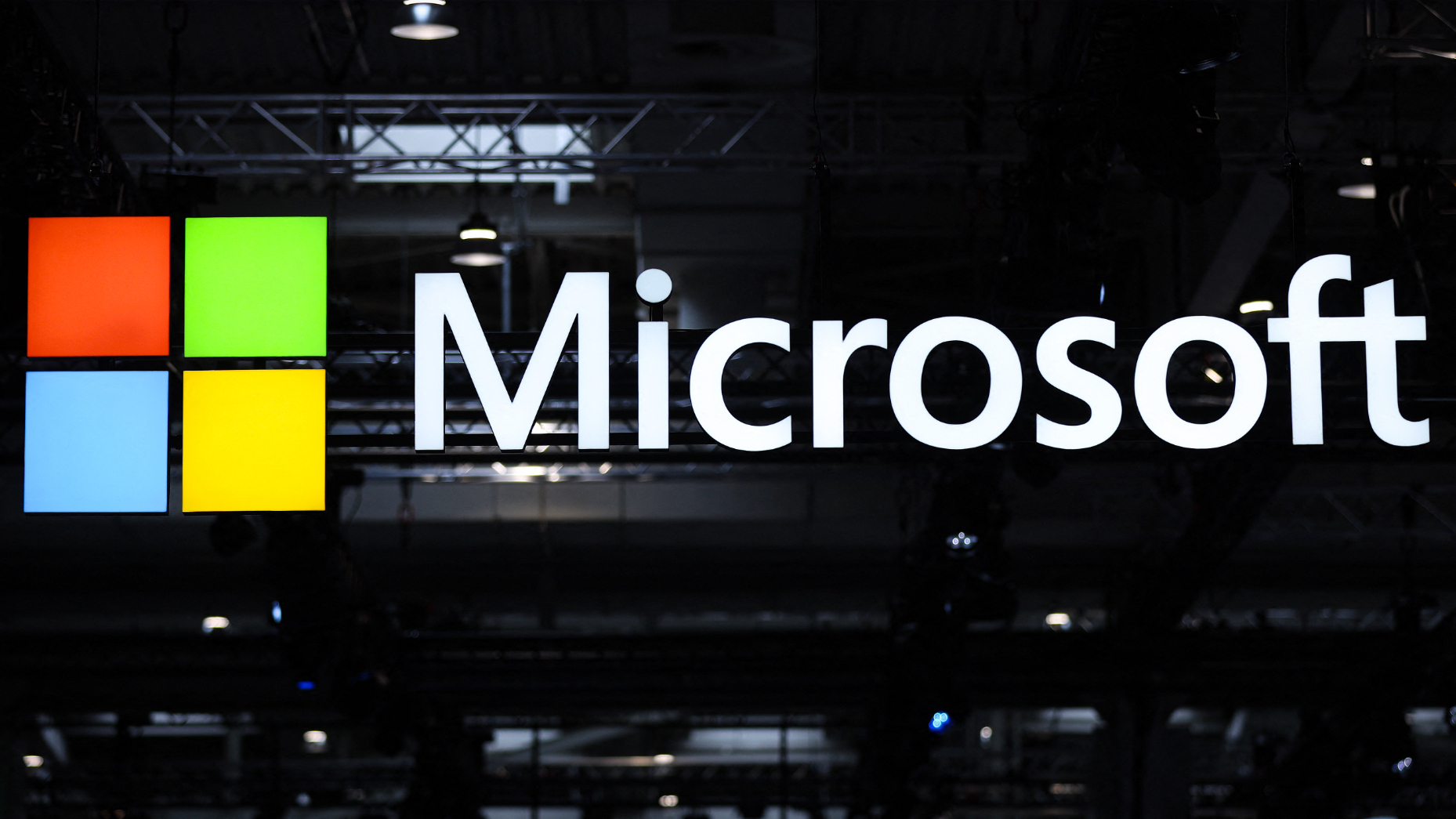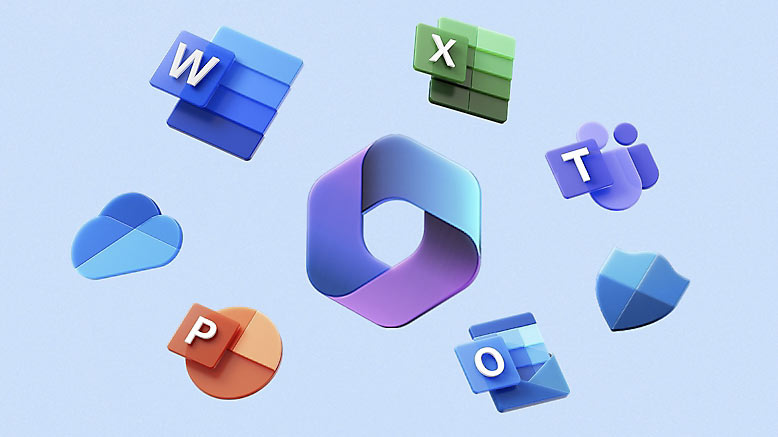Microsoft to appeal ruling in favor of reselling perpetual Windows licenses — UK Competition Court says fineprint holds no ground as judges throw out company's 'creative work' argument
Microsoft Office products are not copyright protected.

Microsoft says it will appeal against a ruling handed down by the UK Competition Appeal Tribunal, which states that the software the company licenses, including Windows and Microsoft Office, can indeed be resold. The court said that Microsoft's crafty but ultimately fruitless argument that reselling perpetual licenses infringed its copyright didn't hold water. As reported by The Register, a Microsoft spokesperson said, "We disagree with the decision and intend to appeal it."
Back in 2021, a UK-based reseller by the name of ValueLicensing sued Microsoft over the legality of redistributing licenses for products like Windows and Office. The Redmont giant's contracts included clauses prohibiting constituents from being able to resell licenses that had already been issued before. In the original claim, ValueLicensing argued this was against the law, costing it millions in lost business. Microsoft initially refuted the case, then eventually concocted a copyright infringement argument instead.
Since Office programs like Word include some graphics and such, it allegedly qualifies as an original work of art, protected by creative work laws. The judges disagreed with Microsoft, making it clear there's nothing in these products that would warrant copyright protection. A customer holding a perpetual license can resell it however they wish, a notion that ValueLicensing already knew had grounds. A decade ago, a similar suit filed in the UK by UsedSoft declared that reselling licenses is valid, so Microsoft's last-ditch effort wasn't exactly calculated. In the UK at least, the ruling, if upheld, will make getting Windows 11 for free (or at least cheap) a lot easier.

"ValueLicensing has always believed it was running a legitimate business underpinned by the principles of the European Software Directive and the UsedSoft judgment at the ECJ," the company's MD said. "This judgment confirms these principles, which legitimately allowed ValueLicensing to save its customers money on used Microsoft software. Now these preliminary issues have been decided, we look forward to continuing the claim against Microsoft."
The case is far from over, however, as the quote above reinforces. The copyright infringement fiasco ultimately served as nothing more than a distraction in the larger scheme of things, as ValueLicensing intends to get back to its original case, for which Microsoft will now have to find a new argument. If the company loses this suit, it will have to pay ValueLicensing at least £270 million in damages, and that's not even the worst payout potentially on the horizon for Microsoft.
The Redmont giant is entangled in another, comically similar class-action lawsuit — alleging abuse of dominance pertaining to licenses — that could put the company on the hook for billions if it goes through. Microsoft and claims of anti-competitiveness, inflated pricing, and contractual red tape are a tale as old as time, with the company seemingly involved in litigation perpetually (no pun intended). But with the AI boom in full effect, leading to record-breaking capitalization, navigating lawsuits is like loose change.

Follow Tom's Hardware on Google News, or add us as a preferred source, to get our latest news, analysis, & reviews in your feeds.
Get Tom's Hardware's best news and in-depth reviews, straight to your inbox.

Hassam Nasir is a die-hard hardware enthusiast with years of experience as a tech editor and writer, focusing on detailed CPU comparisons and general hardware news. When he’s not working, you’ll find him bending tubes for his ever-evolving custom water-loop gaming rig or benchmarking the latest CPUs and GPUs just for fun.
-
Dr3ams Here in Germany...Reply
...the Federal Court of Justice (BGH) ruling: A 2000 ruling confirmed that copyright cannot be used to prevent the resale of a used OEM (or otherwise) copy of software.
Microsft is going to lose this case in the UK.
The ruling established the "exhaustion principle" for copyright. This means that once a copy of the software is sold and its copyright is exhausted, it can be resold, even without the original hardware. -
LordVile So basically resold OEM keys are legal?Reply
Maybe if they didn’t charge £220 for the full version of windows and £120 for a half baked version, both of which they still mine data on AND serve ads on, more people would purchase it legitimately.
Should be illegal for a product you pay for to feature baked in ads. If anything they should sell the current version as windows standard with ads for £50 and sell the Pro version for 120 with ads removed and the option to disable telemetry properly. -
Armbrust11 Reply
YeahDr3ams said:Here in Germany...
Microsft is going to lose this case in the UK.
Copyright prohibits making unauthorized copies. It does not prohibit original purchases from being sold when no longer needed. The license idea was always flimsy when software was a physical product (disc in a box). Now that everything is digital we need our rights reinforced.
Additionally, there's an argument to be made that only source code and UI elements can be copyrighted. Compiled code or works from generative ai lack human authorship. -
USAFRet The problem is not so much me selling my no longer used OEM license.Reply
That is an easy 1 for 1 deal.
Rather, it is some guy selling 1,000 of them for $10 each.
How were these obtained? -
Dr3ams Reply
Computer leasing companies are one huge source of unused OEM licenses. Back in the late 90s and early 2000s I worked for one of the largest ones in Europe. When leasing contracts closed we would get back thousands of PCs and laptops along with an equal amount of unused OEM licenses. After the year 2000 we started selling those licenses to schools and resellers.USAFRet said:How were these obtained? -
USAFRet Reply
And what happened to the hardware, now with no license?Dr3ams said:Computer leasing companies are one huge source of unused OEM licenses. Back in the late 90s and early 2000s I worked for one of the largest ones in Europe. When leasing contracts closed we would get back thousands of PCs and laptops along with an equal amount of unused OEM licenses. After the year 2000 we started selling those licenses to schools and resellers. -
vanadiel007 I always found it "interesting" you can buy an OEM version from one of those online places for a fraction of the retail price.Reply
OEM implies Original Equipment Manufacturer, and I always wondered how you could resell those licenses in the retail market, considering they are OEM. -
palladin9479 Reply
In Europe, they have always been legal in Asia.LordVile said:So basically resold OEM keys are legal?
I'm hoping this spreads, stopping companies from selling products with a built in expiration date. -
helper800 Reply
What is the implication? The vast, vast majority of excess Windows keys being sold for 10-20 dollars were excess keys purchased by large companies that resold them through a broker. Do you believe that they were all 'obtained' by ransacking 1000 laptops from peoples cars or homes?USAFRet said:Rather, it is some guy selling 1,000 of them for $10 each.
How were these obtained? -
palladin9479 Replyvanadiel007 said:I always found it "interesting" you can buy an OEM version from one of those online places for a fraction of the retail price.
OEM implies Original Equipment Manufacturer, and I always wondered how you could resell those licenses in the retail market, considering they are OEM.
Different countries have different laws. Most OEM PCs are made by subcontractors in Asia, those subcontractors buy OEM keys from MS in 10,000 unit SKUs. Unused keys are later resold and this is legal in those countries. The only way MS could stop it would be to convince the US Government to send over a carrier battle group and make those countries the 51st, 52nd and 53rd State.
This is one of the reasons, along with spying, MS is pushing for forced Secure Boot + MS Account registration. They have very little hope in convincing the US to enforce US law on countries in Asia where resellers are at, the most prolific of which also happens to have nuclear weapons and is has an antagonistic relationship with the USA.